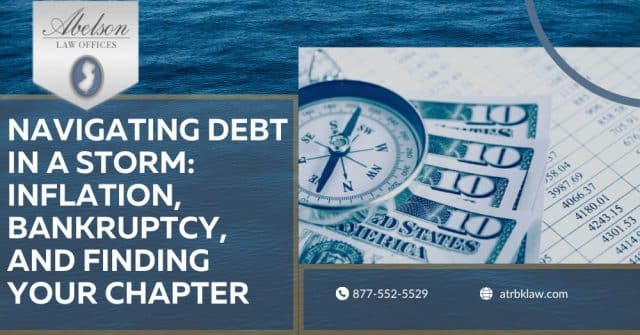Bankruptcy filing is rarely the first option for debt relief. People normally try to move heaven and earth to avoid this alternative, which while understandable and even commendable at times, can often lead to unanticipated and extremely negative consequences. Endless delay or procrastination of a bankruptcy filing rarely leads to debt elimination and normally makes matters worse – not better.
Collection agencies and attorneys have numerous tools at their disposal to disrupt the pattern of one’s everyday lives. Apart from the endless collection calls and harassment which can challenge anyone’s sanity, collection litigation and judgments are perilous in their effect. They can result in wage executions, bank levies, chattel executions on cars or other personal property, or liens on all real estate. If there is sufficient equity in the real estate, even a subsequent bankruptcy filing would be powerless to eliminate that lien. Cash or bank levies can be stopped by the bankruptcy- but only prior to an Order for Turnover by the Superior Court.
Even if the creditor cannot initially locate assets to levy against or attach to satisfy a judgment, they can serve what is a called an “Information Subpoena” requiring the debtor to reveal and identify by location all wages, bank accounts, or other assets. The failure to comply with an Information Subpoena can be very risky as the Court can enforce them with severe penalties, including physical arrest. Therefore, even if the creditor at first is unaware of where a debtor works, or has a bank account, it normally is only a matter of time.
Delays in obtaining bankruptcy relief can further open the door for extremely unfortunate tax consequences. Income tax debts can be discharged after certain time periods (normally three years), but once the IRS files a tax lien or the State of New Jersey files a “certificate of debt” these obligation become secured against all real estate and other property and can rarely be eliminated under any circumstances. Since the tax debt become secured, the interest attached to them becomes secured as well and would have to be ultimately paid – even in bankruptcy.
Sometimes seemingly inconsequential or beneficial life changes can also play havoc with a bankruptcy filing. A small increase in income or a marriage prior to filing can significantly impact the “means test” ( the 2005 bankruptcy law standard to qualify for basic Chapter 7 relief) and thus deprive an individual from a Chapter 7 discharge from bankruptcy for which they qualified but for the delay in filing. And of course, if payments are being used to maintain the debt throughout this process, the value of those lost funds plus the potential interest on those monies can be substantial. Any monies dissipated in this fashion are simply less funds available to start over and rehabilitate one’s self after the debt elimination.
Certainly, a bankruptcy filing is an important decision that should not be raced into. However, once it is apparent that the filing is necessary to protect oneself from the creditors and there is no viable alternative that would eliminate the debt in a defined period of time, continual delay of the process does not serve the debtor well.




